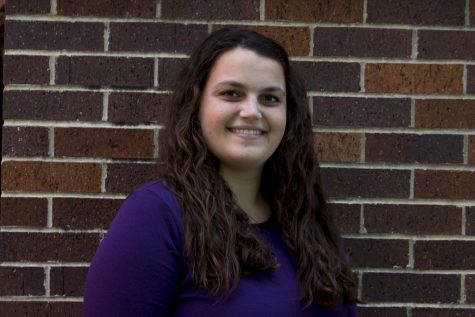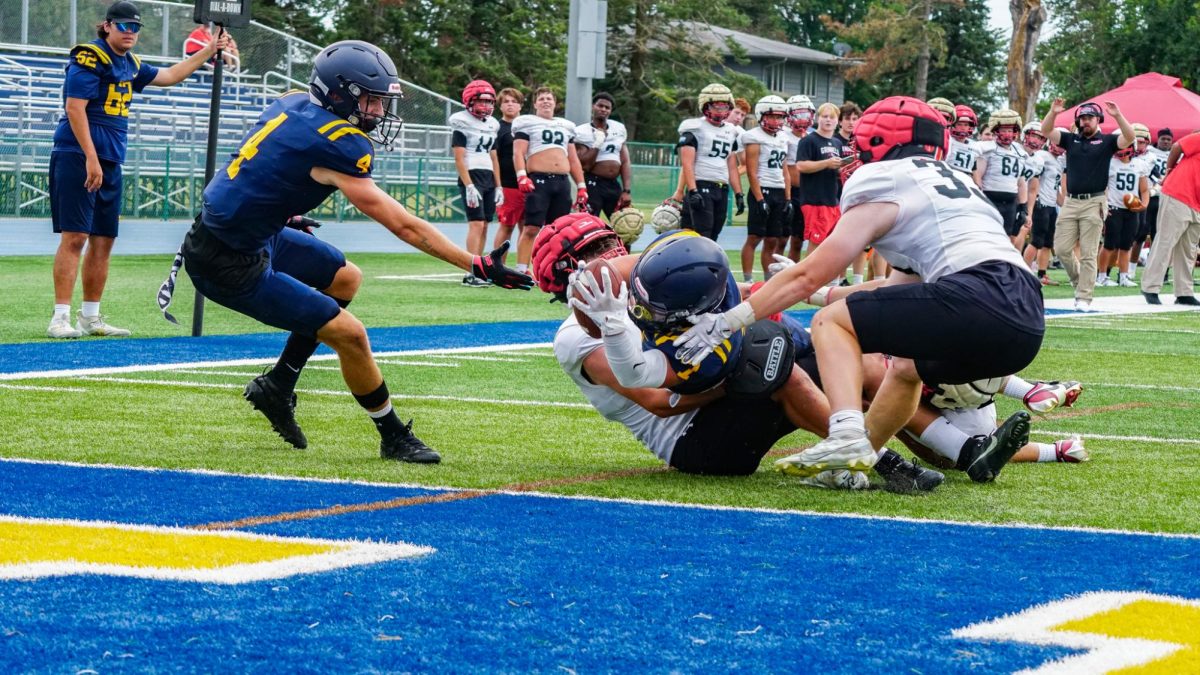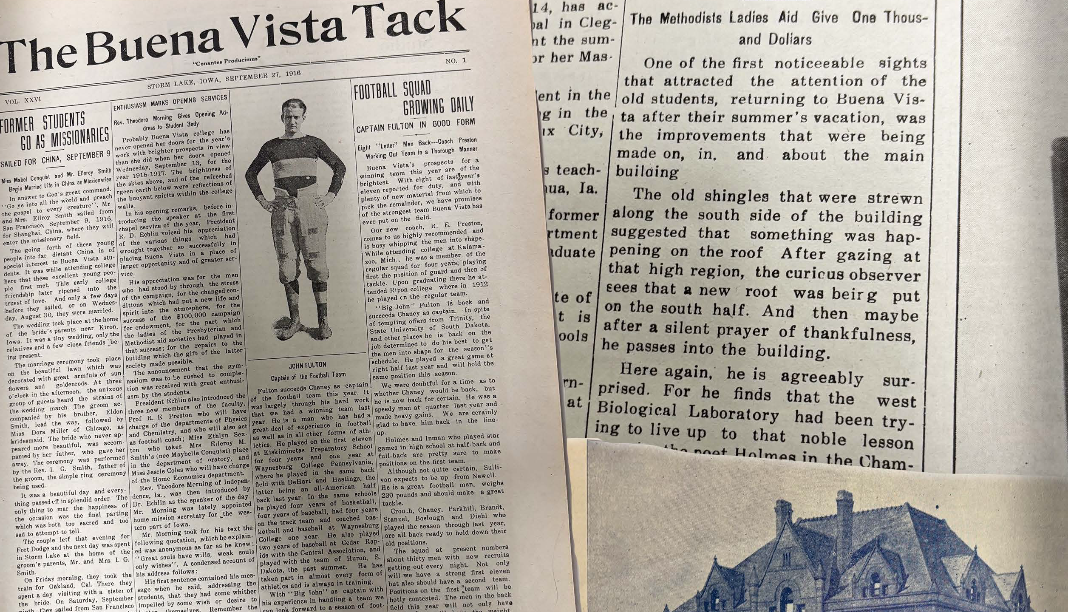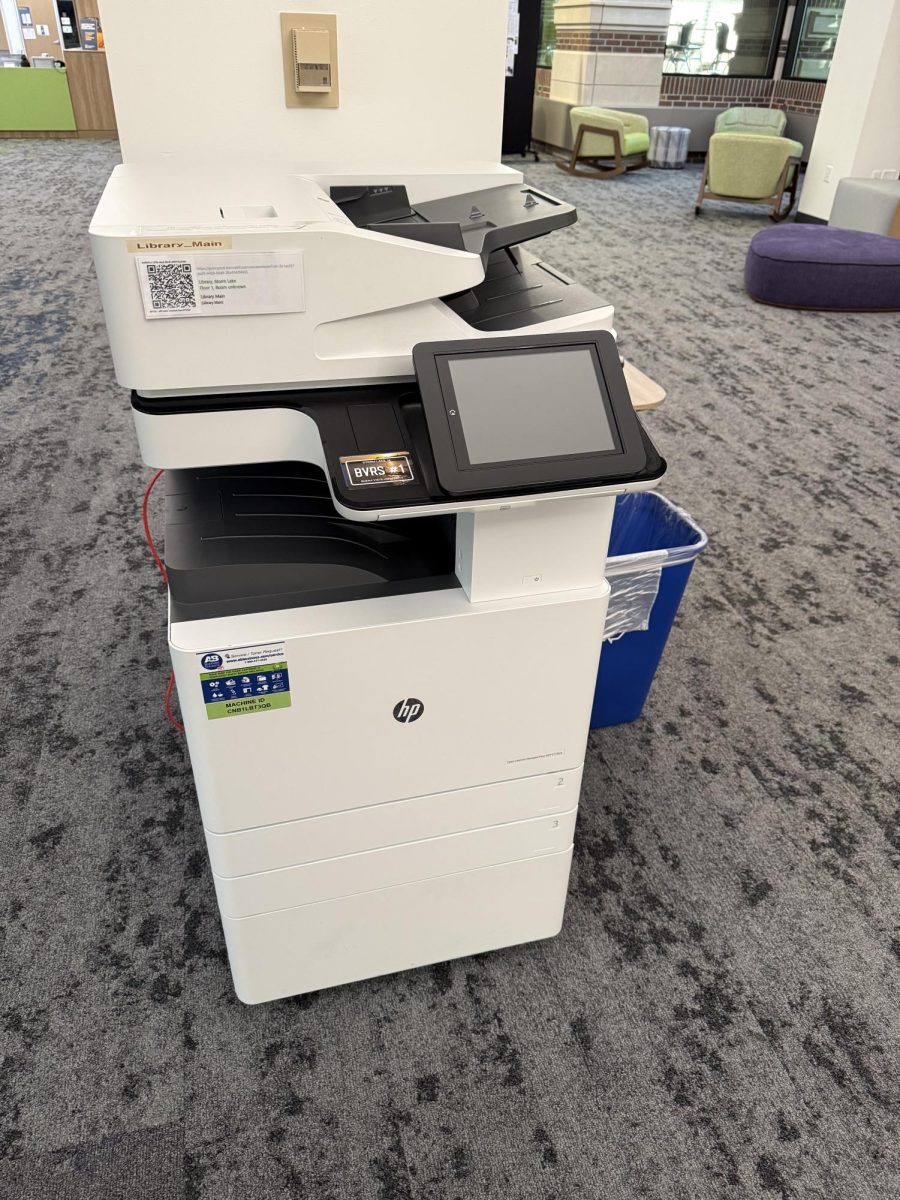Resident Life Concerning COVID-19

October 14, 2020
Buena Vista University’s community has now, for the last three weeks, maintained less than 20 active COVID-19 cases. This consistency is an indicator for how students, faculty and staff are complying with policies and procedures that were created and reformed since the second week of this semester, when BVU saw a jump in cases from 8 to 38. When this happened, one of the major actions taken by administration was eradicating the visitation policy in the residence halls and suites. No one except the two roommates were allowed in rooms, with the same rule implemented in the suites and only allowing a few members to be in the lounge together so long as they wore face coverings.
Since the visitation restriction was established, BVU has seen a decline in active cases with more students adhering to protocols in both academic buildings and residence halls. As of 8:00 a.m. October 13, Buena Vista’s active case count is 12. Student Senate president Paige Vanderhoff explains the positive changes she has seen over the last few weeks. “I know in the suites it definitely has gotten better. Seeing people go upstairs or going to their rooms and they all have their masks on [the right way]…it helps the Community Coordinators and Resident Assistants saying ‘hey, you know, that’s not the proper way to wear [your mask]’. We have to take care of each other, and this is the way to do it,” Vanderhoff said.
Interim president Dr. Brian Lenzmeier emphasized over several past emails to the campus community his appreciation for the effort put forth by students, faculty and staff to work together in minimizing the impact of COVID-19 on campus. He understands the importance of acknowledging these steps in the right direction by means of providing students more flexibility in visitation policies. “We recognize having friends and being able to hang out is one of the important reasons of why you’re here. We are looking at case numbers and if students are doing a good job, we can revisit that conversation,” Lenzmeier said.
Lucy Croft, Vice President of Student Success, also attests to how BVU’s campus community has adhered to policies and procedures, even as they change. “We are happy with students abiding, and faculty and staff, are all seeming to get used to the regulations, protocols and restrictions. They are becoming habit now and people are getting used to them,” Croft said.
In an email sent to the BVU community on October 2, he stated that the administration, “Will be assessing a phased-in approach to expanding internal visitation privileges in the residence halls.” There are multiple factors looked at besides the number of active campus cases when evaluating if it safe to reopen residence hall visitation. A major one is conduct violation incidents and the behaviors of students in regard to following COVID-19 policies and protocols. “If the behaviors [in residence halls] are becoming more positive and more people are wearing face coverings and acknowledging that they cannot have visitation right now. If we are seeing good behavioral changes over time, or respect for the policy, we can revisit some of these restrictions,” Croft said.
But with only five weeks left on campus as of Friday, when will students possibly see these changes?
Croft believes that so long as our active cases on campus continue to remain steady or decrease, the administration could lift the visitation restrictions relatively soon. The important thing to remember, however, is the unpredictability of the coronavirus makes it difficult to set definitive dates.
If the visitation policies change to allow visitation, according to Croft, there would be minor adjustments from what they were back in August. “Right now, we are looking at going back to one-to-one, meaning one resident per one guest, and that guest has to be a BVU residential student…And then in the suites area, we are looking at, of those six residents in the suite, they can have two guests. So, a total of eight residents in a suite at one time, but in the common area you have to be wearing your face coverings…because you cannot physically distance in a small space,” Croft stated.
Looking ahead to Thanksgiving break, residential students will move to remote learning for the remainder of the semester. As stated before, with the unpredictability of the coronavirus, it is uncertain if classes will resume face-to-face at the start of second semester on January 11. Croft outlined what students should do as we prepare to return home for the holidays and possibly must begin spring semester via remote learning. “We are encouraging [residential] students to take home as much as they possibly can take home. Things that they absolutely need. Within mind, because [COVID-19] is so unpredictable, we may delay coming back spring semester. If numbers spike and they go up high, we may have to go online learning the entire spring semester. Or we could come back, and everything will be great. So, because it is so uncertain, the one thing we can tell students when they leave November 20…really think about what you want to take home over that long break,” Croft explained.
An important note is this does not mean that students must vacate their residence halls in November. Students can leave stuff in their rooms. However, after November 20, it is uncertain whether everyone will be permitted to return in January. Croft stressed considering worst-case scenarios for what spring semester could look like. “We don’t want to talk about [it] but we do [need to]. Worst-case scenario is we don’t come back spring semester and we’re all online doing remote learning. Now that’s a worst worst-case scenario, but it could happen. So, think with that in mind. What do you want to take home? We urge you to take home as much as you possibly can given that scenario, but we’re not requiring it,” Croft concluded.







